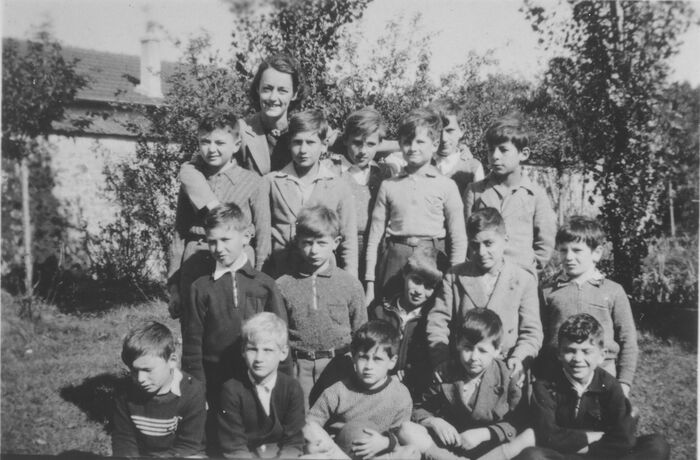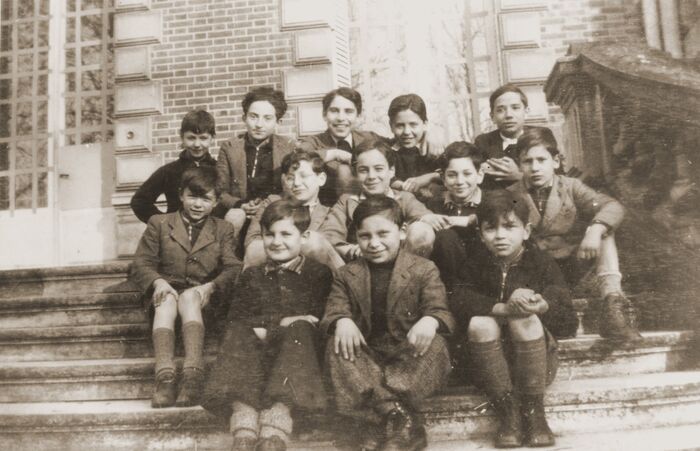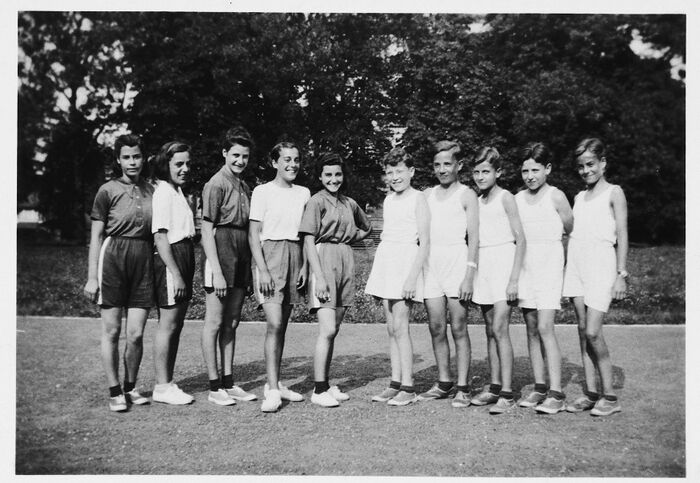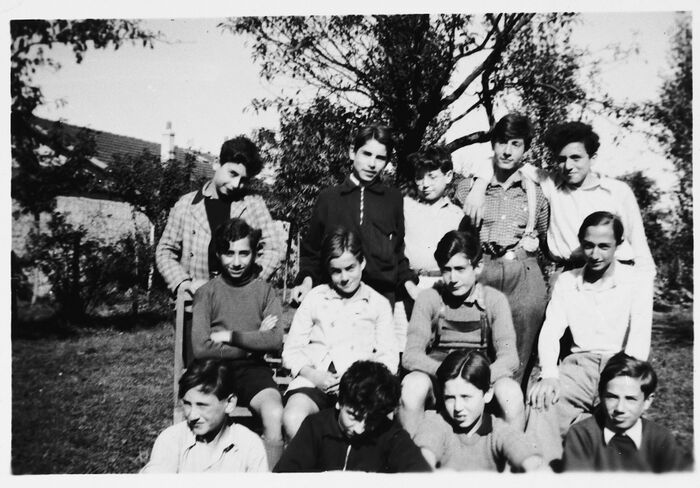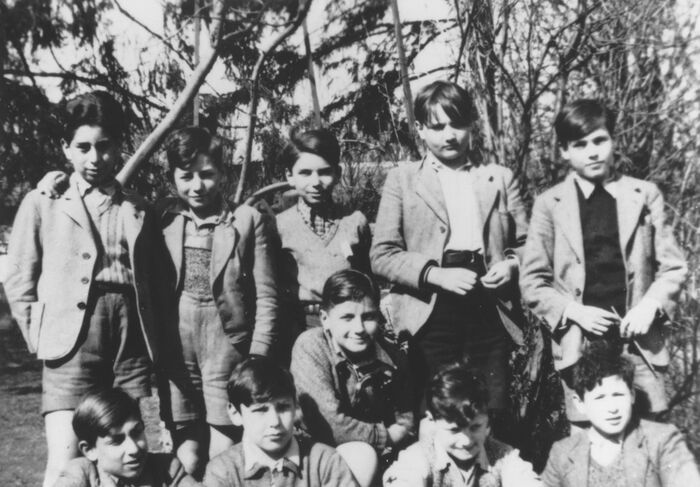Category:Chateau de Quincy (subject)
Chateau de Quincy (France)
Overview
The château at Quincy-sous-Sénart, located 30 km. southeast of Paris, belonged to the Count Hubert de Monbrison before World War II. He and the Princess Irena Paley (a niece of the last Russian czar who later became his wife), used the château to house refugee girls from the Russian and Spanish civil wars. In 1939 de Monbrison was approached by his children's Jewish physician, who was a member of the board of the OSE, and asked whether he would take in a group of forty German Jewish refugee children, coming from the Auerbach Orphanage in Berlin, Germany. The count agreed and the Kindertransport of boys arrived on July 4, 1939. Quincy served as a Jewish children's home until September 1940 when, following the German occupation of France, the château was requisitioned by the German army. The boys were then relocated to other OSE homes.
Raymonde Sauviac, a teacher at the Quincy children's home, poses with a group of Jewish refugee boys who arrived on a Kindertransport from Germany. Pictured in the front row from left to right are: Henry Hoppenstandt, Ralph Moratz, Werner Gossels, Peter Gossels and Wulf Grajonca (Wolodya Grajonza). Second row: Karll Heinz Wolfberg, Norbert Bikales, Sammy Stuck, Erwin Cosman and Herbert Oberniker. Third row: Werner Goldschmidt, Gerhard Glass, Henri Kreft, Arno Marcuse, Egon Zwirn and Berthold Friedlander. Top: Mlle. Raymonde Sauviac (later Fanouillere). Sauviac was later recognized by Yad Vashem as one of the Righteous Among the Nations for her role in rescue efforts in France.
Group portrait of German-Jewish refugee children who were sent to France on a Kindertransport in the spring of 1939 on the steps of the Quincy-sous-Senart children's home near Paris. Among those pictured are Arno Marcuse (front row, left), Norbert Bikales (second row, left), Wolfgang Blumenreich (second row, third from left), Gerhard Alexander (second row, second from right), Gerhard Glass (second row, far right), Eryk Goldfarb (back row, second from left), Walter Herzig (back row, center), Heinz Stephan Lewy (top row, second from the right) and Gerhard Rosenzweig (top row, far right).
A group of refugee girls from the Russian and Spanish civil wars pose with a group of Jewish refugee boys who came to France on a Kindertransport from Germany at a children's home in Quincy-sous-Senart. Pictured from left to right are Consuelo Martin, Nati Macaya, Mercedes Martin, Pilar Fernandez, Niaves Martin, Egon Heysmann, Gerhard Rosenzweig, Heinz Rettig, Heinz Stephan Lewy and Wolfgang Blumenreich.
Group portrait of Jewish refugee boys who came to France on a Kindertransport from Germany. Pictured from left to right are: front row: A. Kaczinsky, Eryk Goldfarb, Heinz Stephan Lewy, Gerhard Rosenzweig; middle row: H. Mastbaum, W. Blumenreich, J. Alter and G. Blatt; top row: B. Warschauer, Walter Herzig, E. Heysemann, C. Zimmermann and J. Kollender.
Group portrait of Jewish refugee boys who came to France on a Kindertransport from Germany. Pictured in the front row, from left to right, are: Sali Obernicker, Hörst Wolff, Henry Rettig, Ivan Rose, and Hörst Cahn. In the second row are Adi Kimmelfeld, Hans Stern, Pierre Marcuse, Gert Alexander, and Siegfried Knop.
External links
Pages in category "Chateau de Quincy (subject)"
The following 10 pages are in this category, out of 10 total.
1
- Wolfgang Blumenreich (M / Germany, 1924-2007), Holocaust survivor
- Heinz Stephan Lewy (M / Germany, 1925), Holocaust survivor
- Siegfried Knop (M / Germany, 1926), Holocaust survivor
- Gert Alexander (M / Germany, 1927), Holocaust survivor
- Werner Goldschmidt
- Norbert Bikales (M / Germany, 1929), Holocaust survivor
- Claus Gossels / Peter Gossels (M / Germany, 1930), Holocaust survivor
- Wulf Grajonca / Bill Graham (M / Germany, 1931-1991), Holocaust survivor
- Ralph Moratz (M / Germany, 1931-2016), Holocaust survivor
- Werner Gossels (M / Germany, 1933), Holocaust survivor
